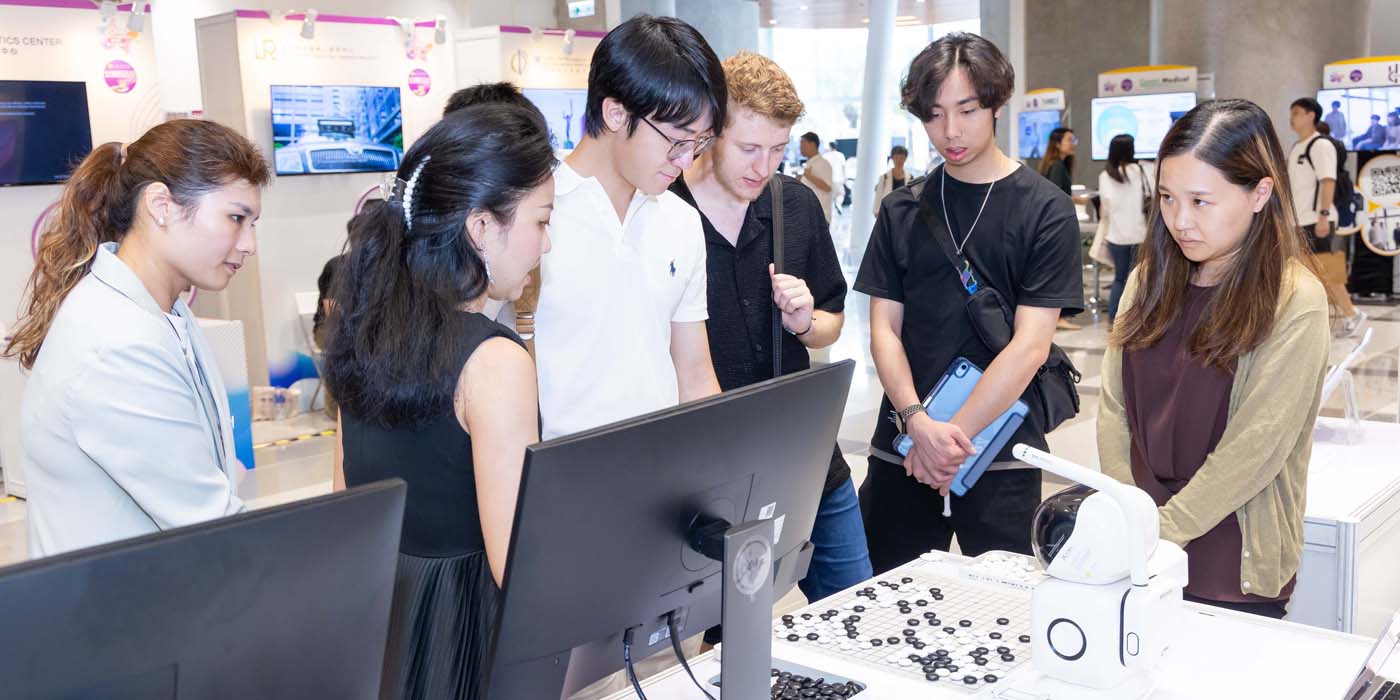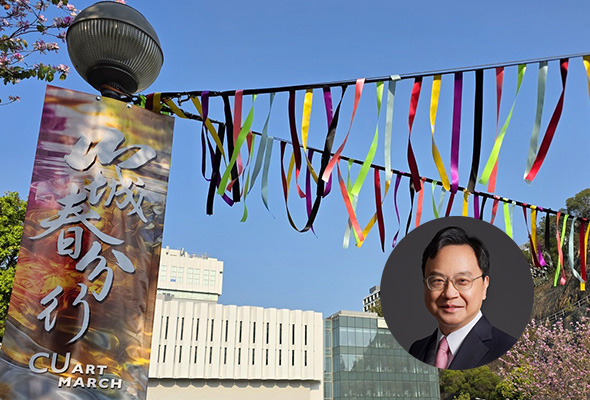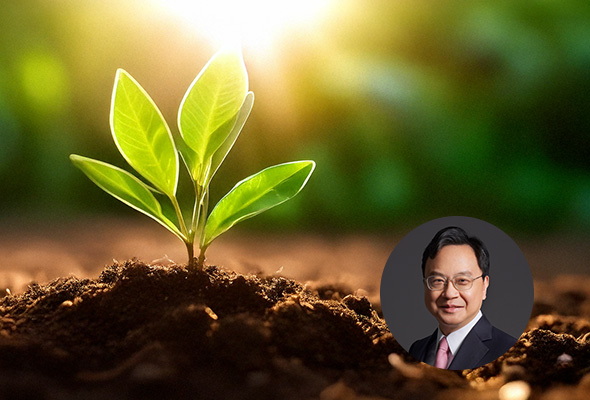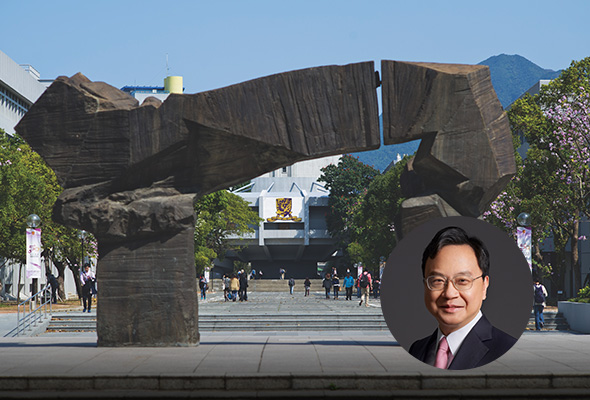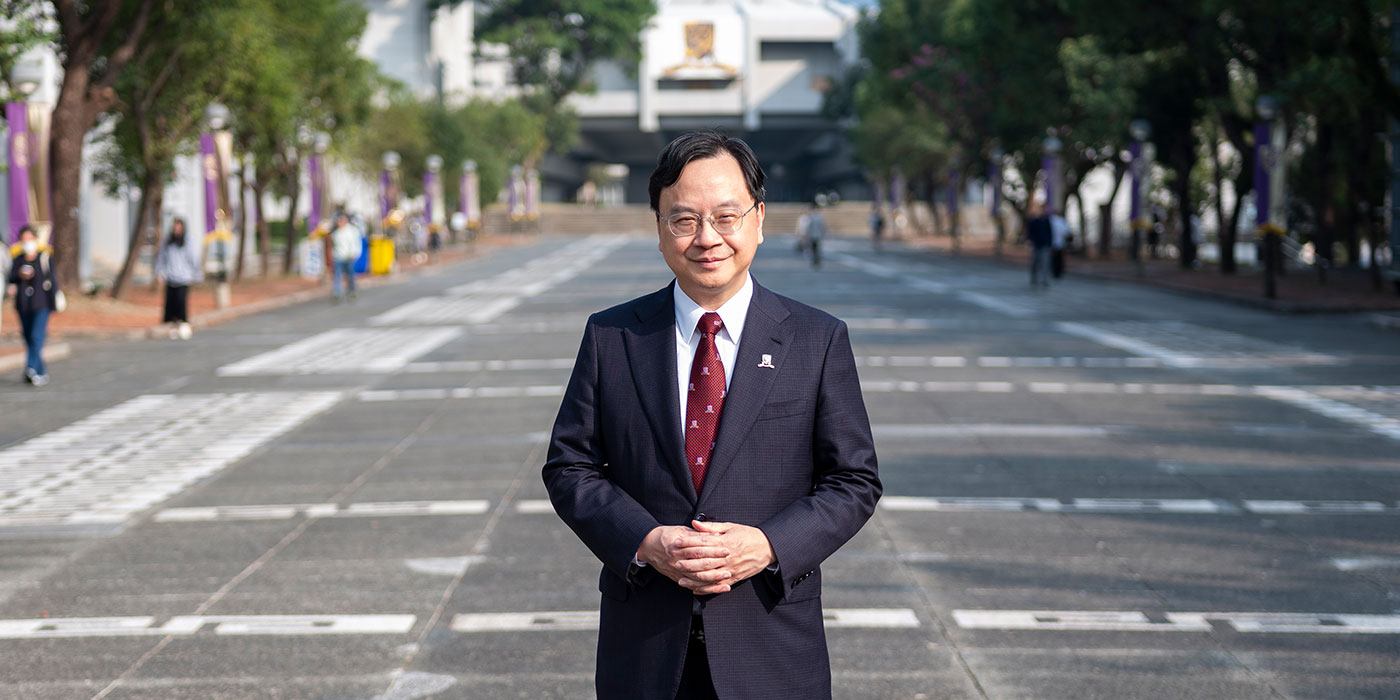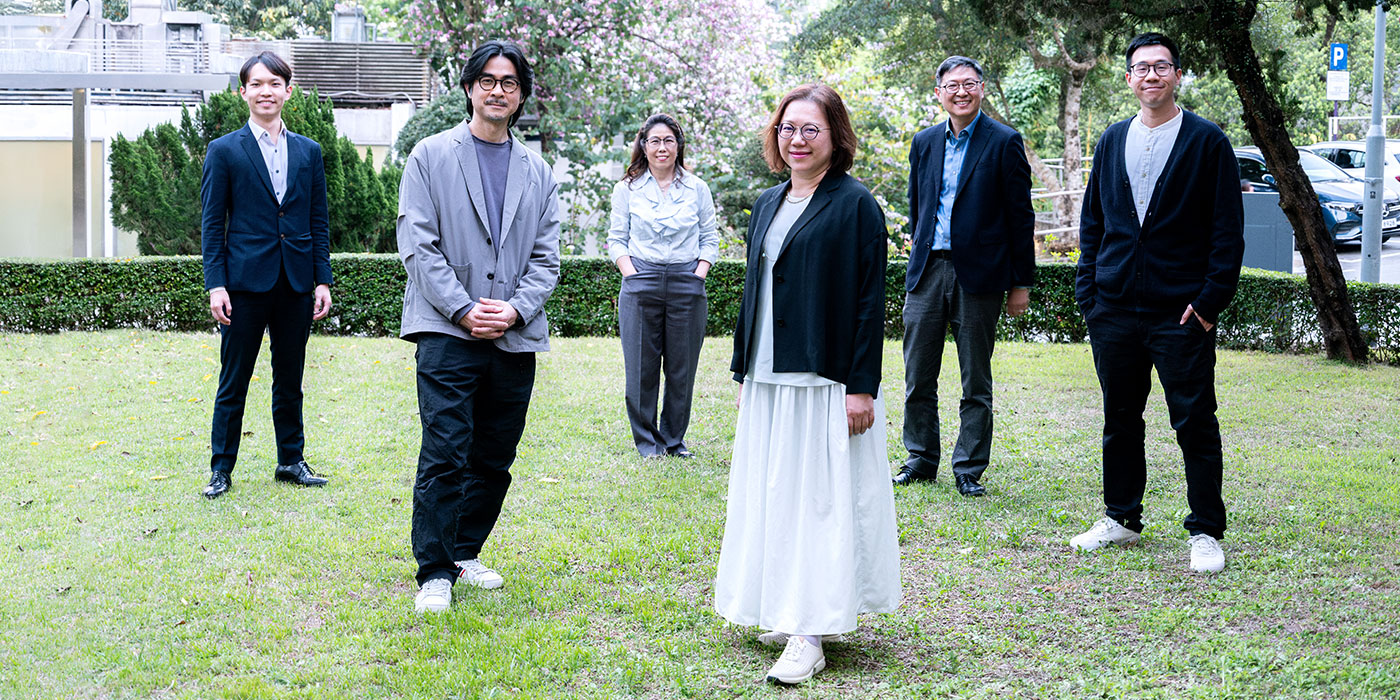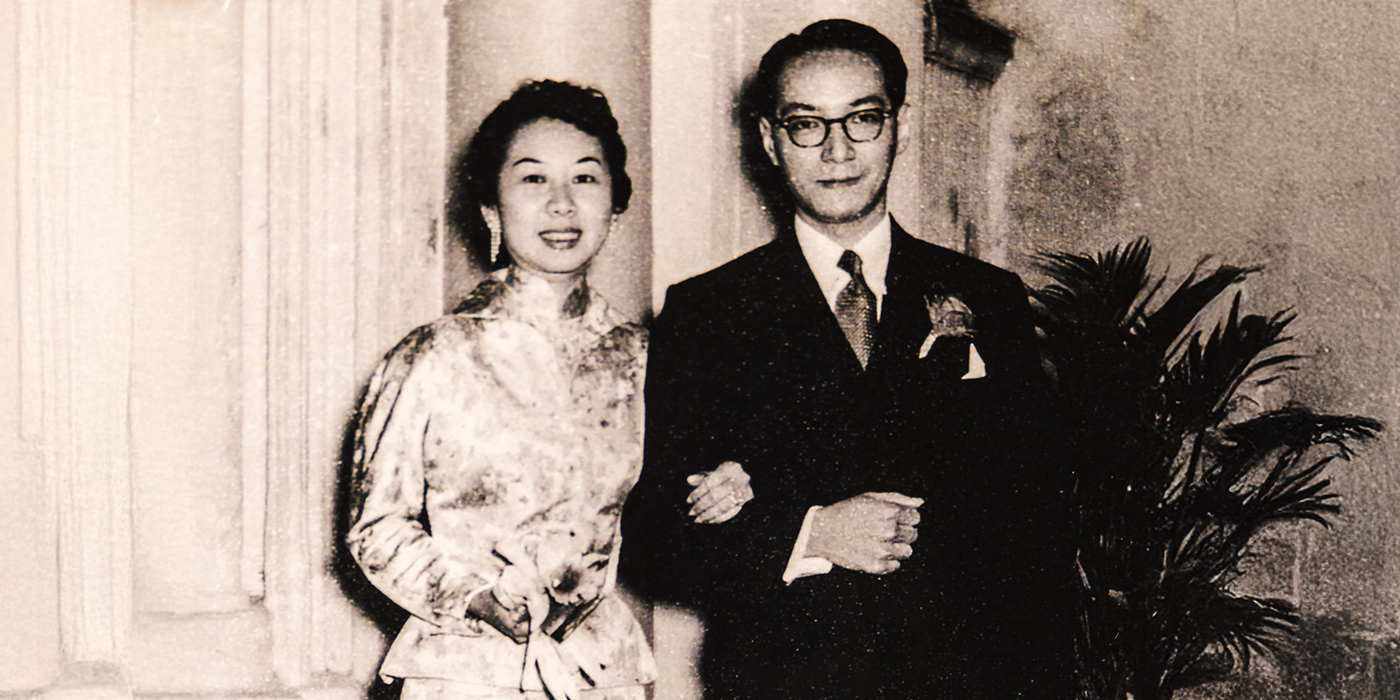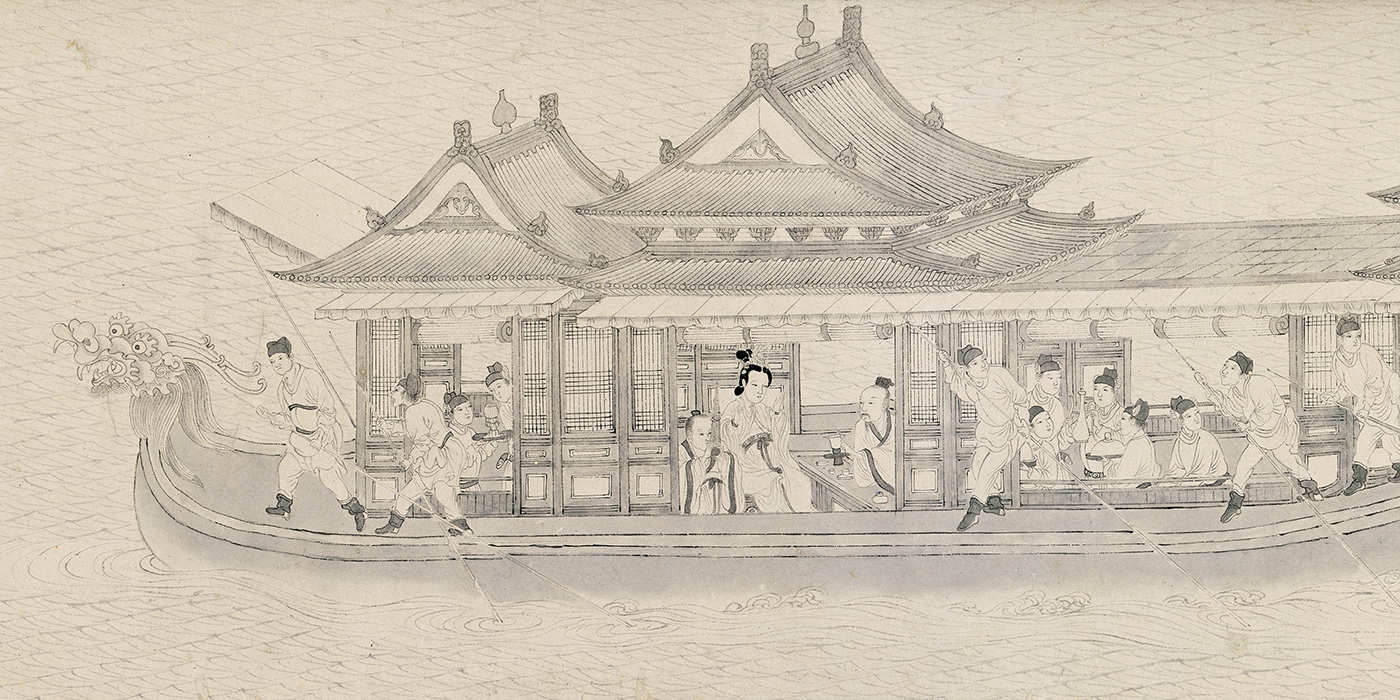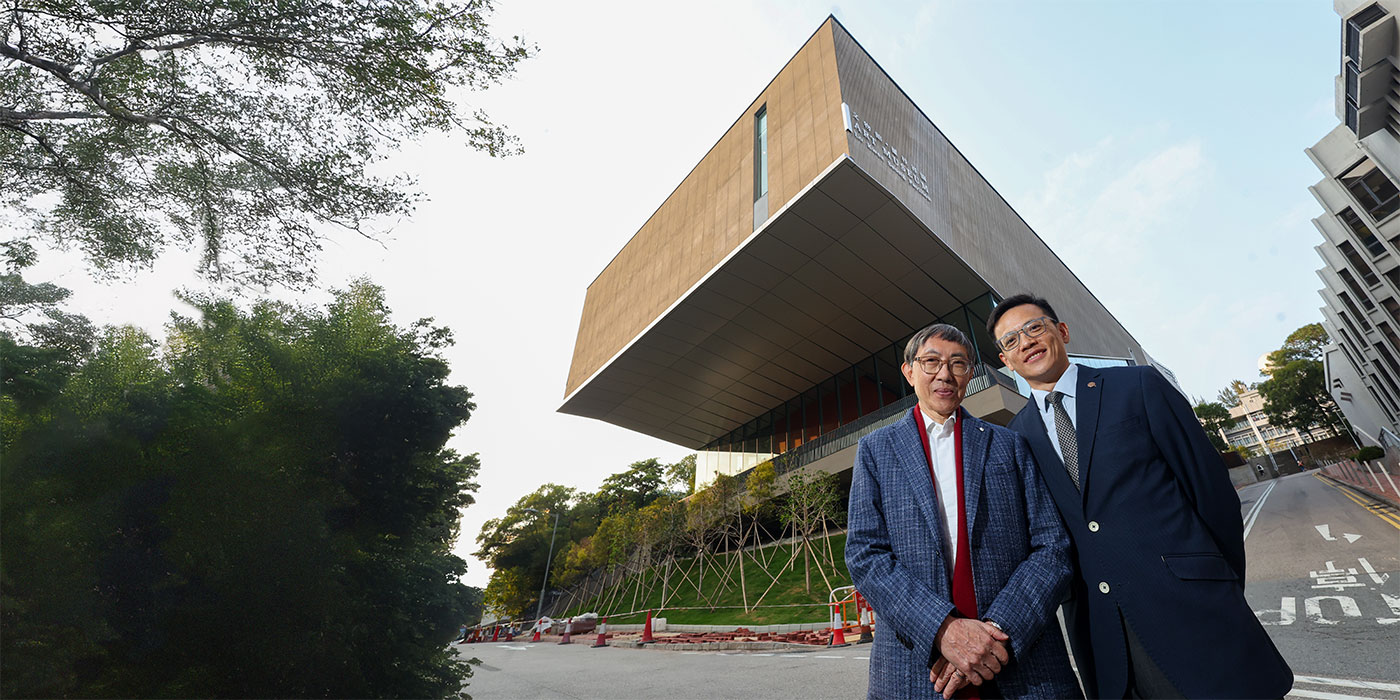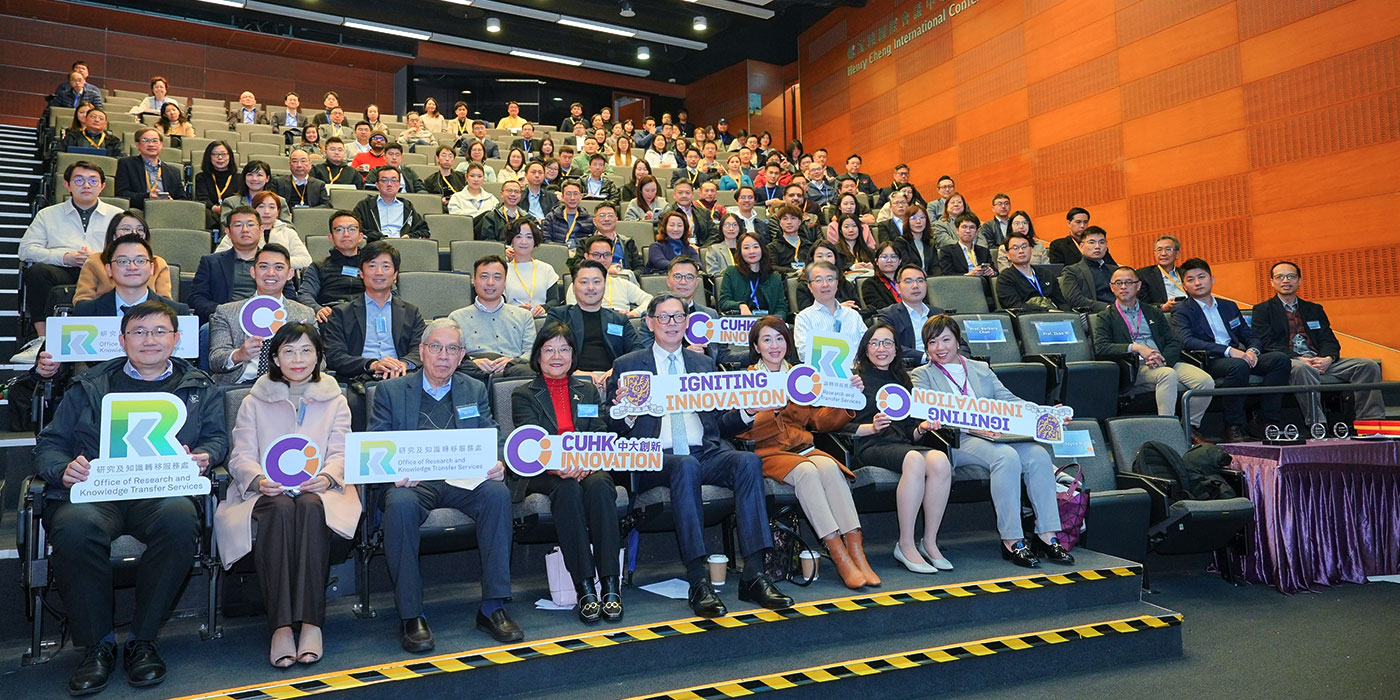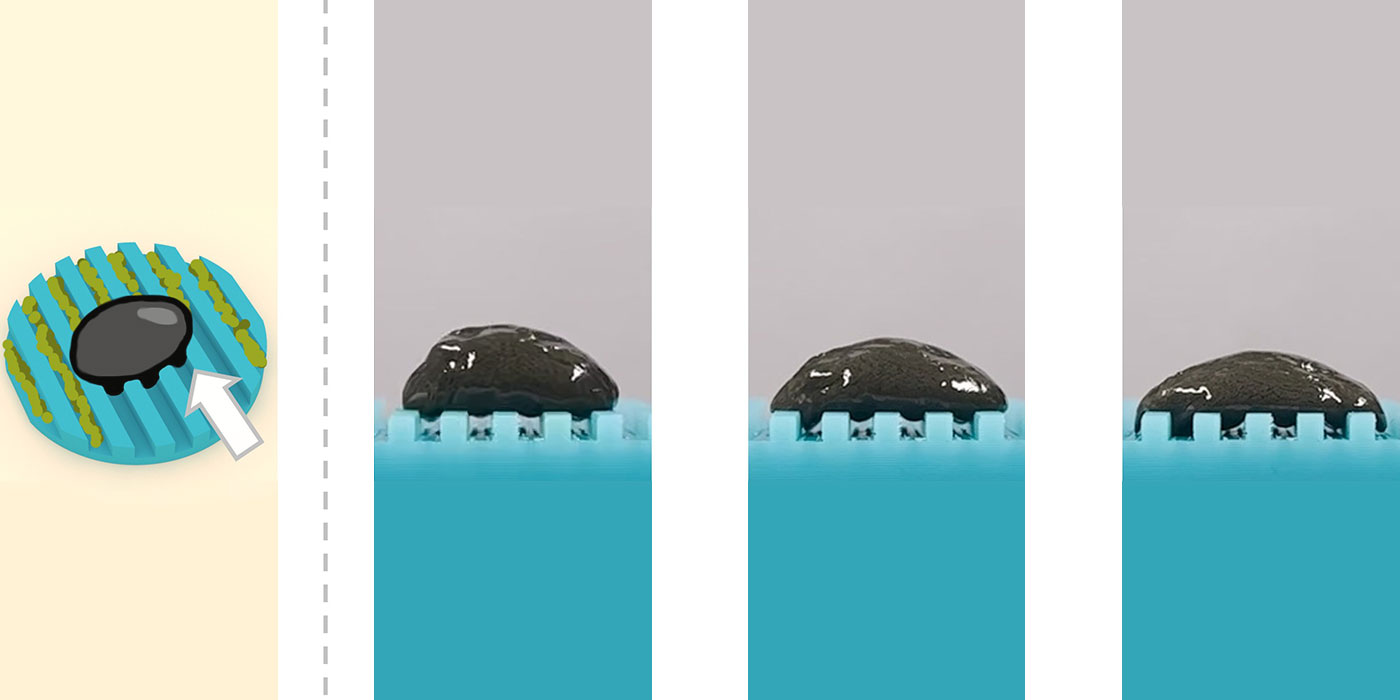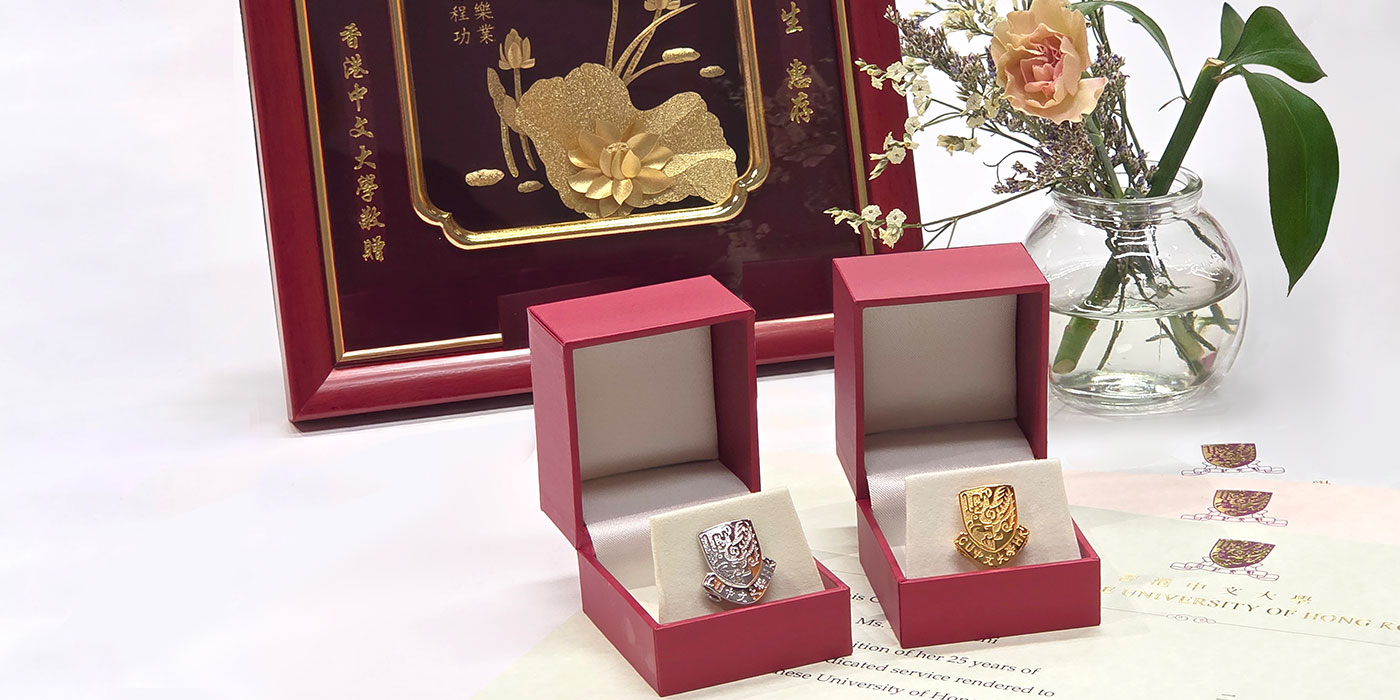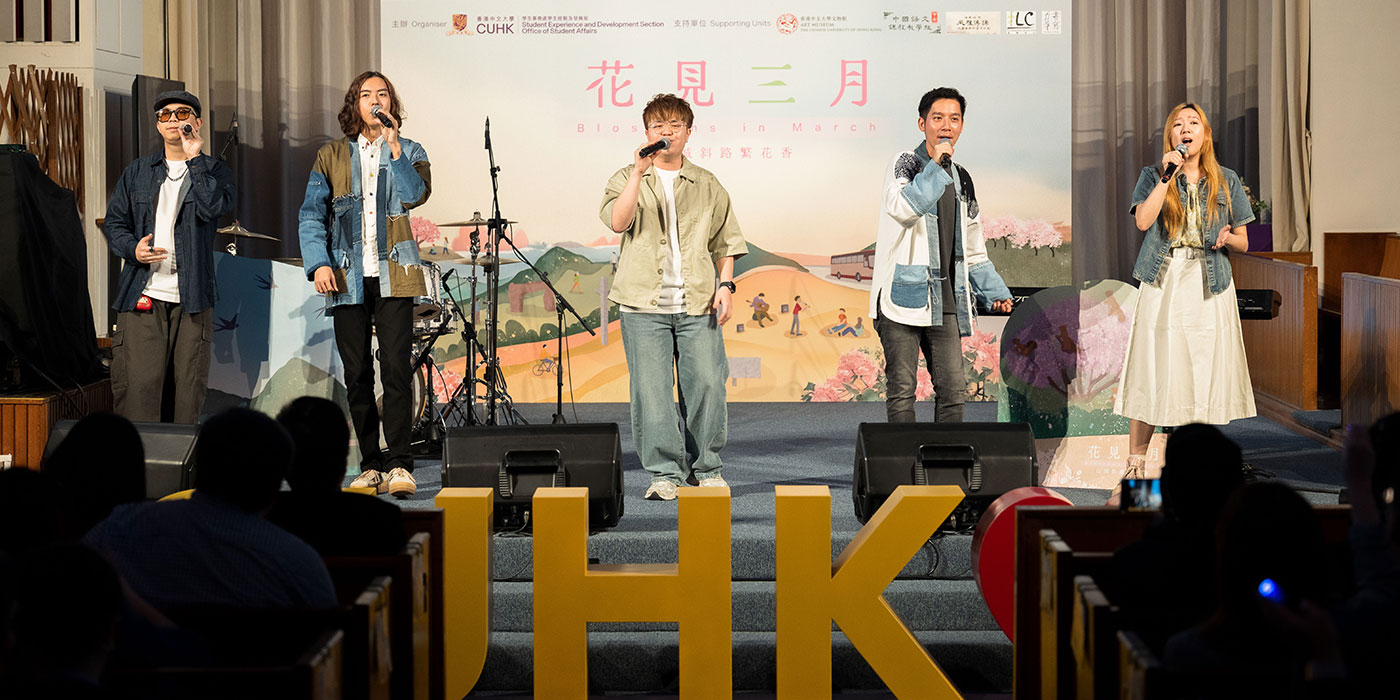Where innovation meets entrepreneurship
CUHK holds its Innovation and Entrepreneurship Day fairs
Eager to witness the future
On 21 September, the Yasumoto International Academic Park (YIAP) found itself at the centre of a bustle of activity. Booths showcasing numerous startup projects filled the hall, jostling with each other to show off their latest gadgets and innovations, while crowds filled the corridors, weaving in and around each other. This was CUHK’s Innovation Day (I-Day), held for a third consecutive year, and it attracted a rich mix of attendees, from top government officials and University staff through to students passing by.
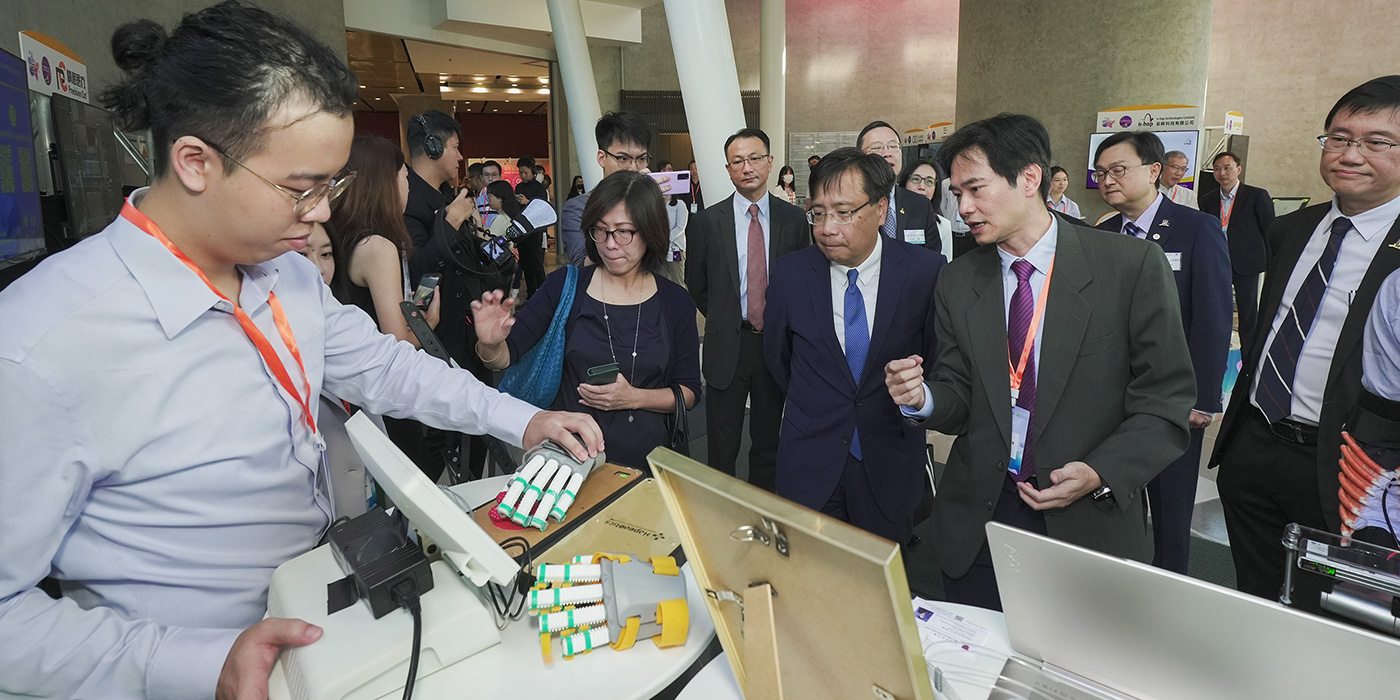
Short pitches, long-lasting impressions
I-Day featured a series of events, including an elevator pitch competition held at the close of 21 September. Twelve startup projects joined the competition, promoting their businesses and the ideas that power them; they pitched a wide range of technologies, from elderly care to waste sorting, to a panel of professionals from the world of business and finance.
After the pitches came thick and fast, the company to emerge as the winner was ACE NanoMed Limited, led by Anna Tsang Chi-man, an assistant professor in CUHK’s Faculty of Medicine. She noted in her elevator pitch how people are reluctant to go through chemotherapy because they are “afraid of the side effects that [they] need to experience”. In an interview conducted immediately after her win, Professor Tsang told CUHK in Focus that the startup aims to develop and market new drugs that can suppress tumours while limiting negative side-effects. “Most targeted therapies usually focus on mutations or a specific feature of the tumour, while our approach is more holistic and targets the entire cancer, as long as it is associated with the Epstein-Barr virus,” she says, referring to a herpesvirus that can cause multiple carcinomas and lymphomas.
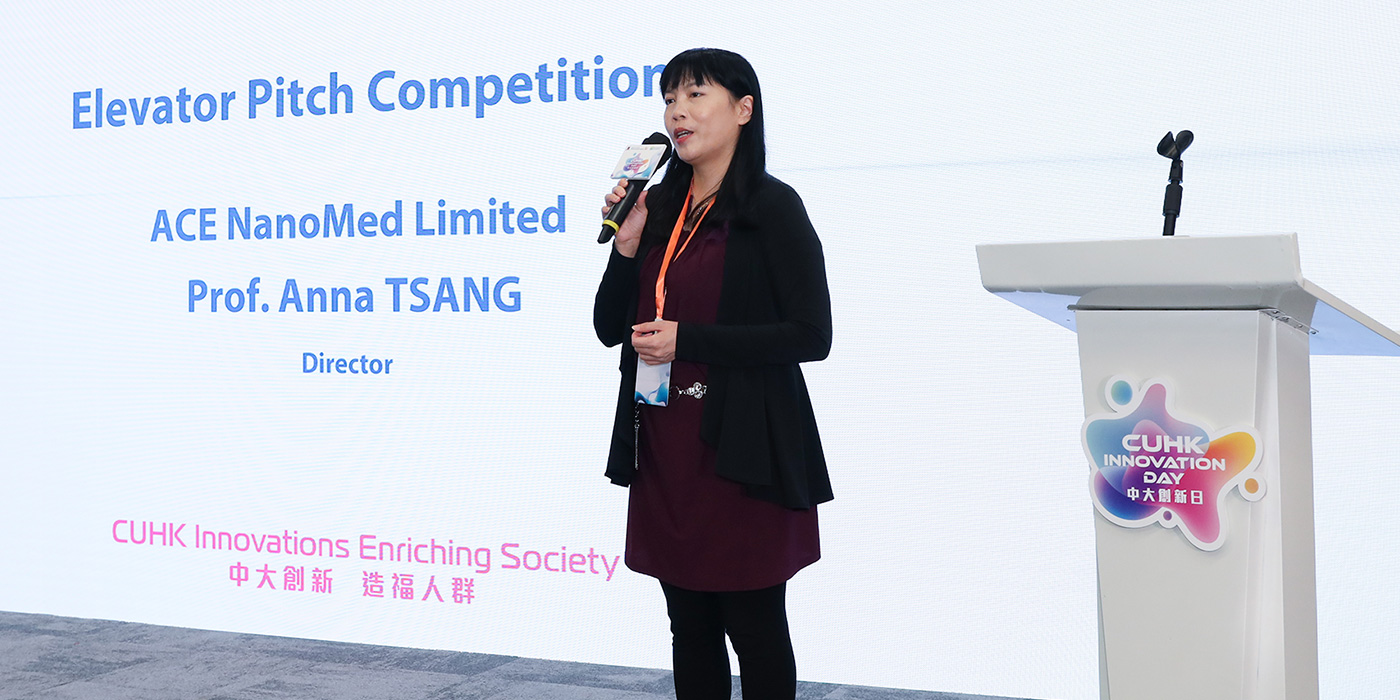
For Professor Tsang, it was not only the novelty of the technologies involved that made her pitch complex. “I was a bit astonished when they announced the time restriction; we had to present on the product, the business model and the team supporting it,” she said. Nevertheless, in a succinct two minutes she talked about the need for companies like ACE NanoMed, and impressed on the judging panel the company’s great potential.
A new springboard for innovators
Startup companies require quite a bit of assistance to flourish, and a new venture from the University hopes to help them out. CUHK Innovation Limited provides preliminary funding to startups, in the hope that they can survive and thrive in the long run. The company was formally established on I-Day with an opening ceremony, during which numerous guests gave speeches to mark the occasion. Heralding the arrival of the new venture, Dr Norman Chan, Vice-Chairman of the CUHK Council and Chairman of the new company, said: “With the establishment of CUHK Innovation Limited, a complete innovation ecosystem is formed within our community — a framework that encompasses the entire journey from research to innovation to entrepreneurial enterprise, backed by the necessary capital.”
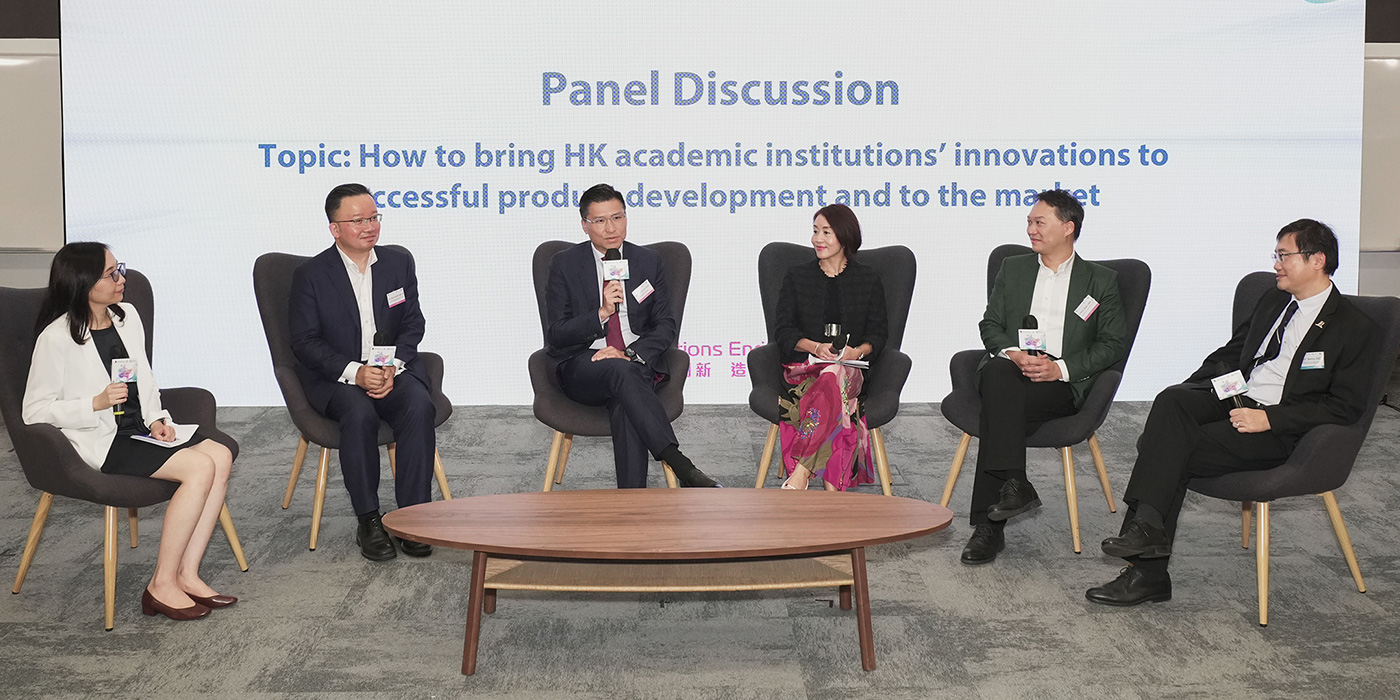
Some of the members of the board stayed behind for a subsequent panel discussion on how academic institutions might bridge the gap between academia and commercial markets. Many of the speakers discussed how Hong Kong, with its ample opportunities, offered an optimal environment for budding entrepreneurs. Professor Benny Zee, director of the University’s Office of Research and Knowledge Transfer Services, said that CUHK was ideally placed to inspire innovation and benefit from it as well: “One thing our university has is smart people, and smart people do things in a smart way.”
Realising the future
The vibrant energy found at the YIAP did not abate after Thursday — most of the startup projects involved stayed on to participate in the CUHK Entrepreneur Day (E-Day), held on Friday the 22nd and Saturday the 23rd. This time, the focus was on the business side of things, with the breadth and depth of CUHK’s entrepreneurial talent showcased to curious students, in the hope that this might encourage them to also pursue their own business ventures as time goes by.
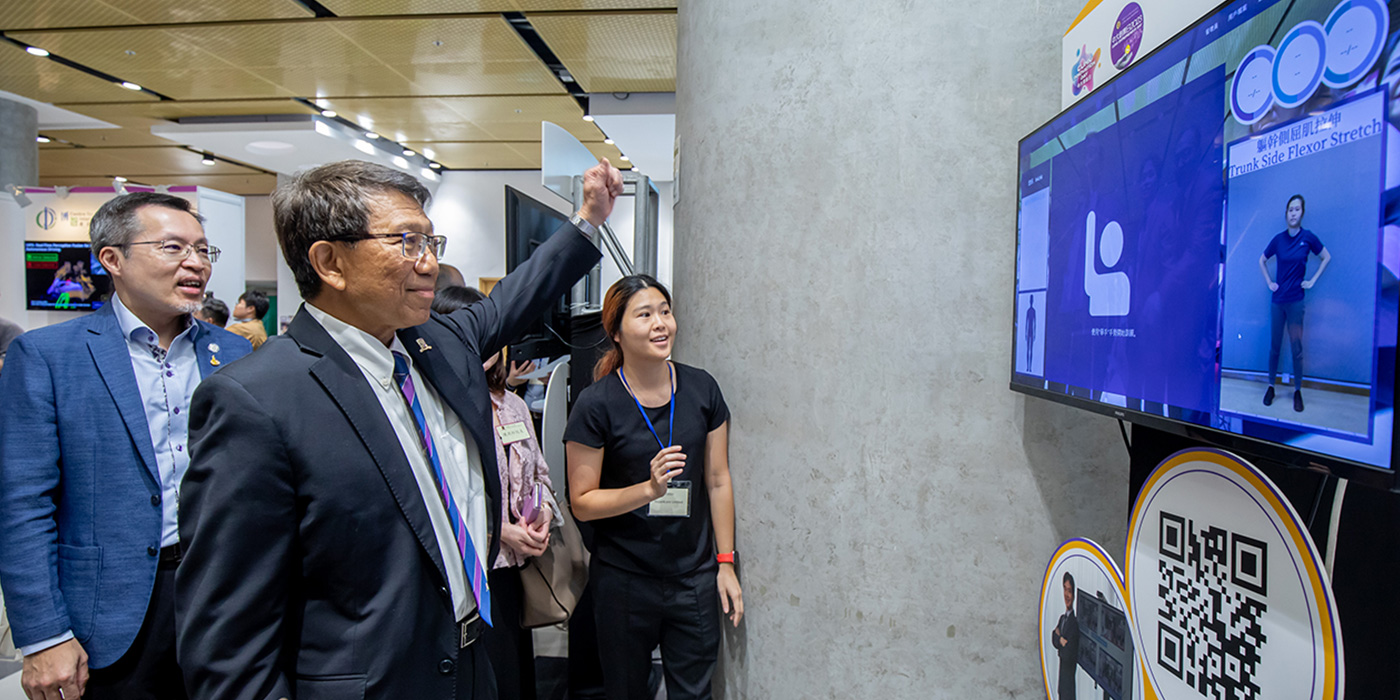
“From zero to one”
The day was capped by the Entrepreneurship Competition 2023 and, a few days later, CUHK in Focus sat down for an interview with winner Luquos Energy Limited. The startup was established at the end of 2020 by Professor Lu Yi-chun of CUHK’s Department of Mechanical and Automation Engineering, and Dr Wang Zengyue — although both academics are eager to point out that their cooperation dates back even further. “This group was founded ten years ago, and batteries are what we’ve been working on,” Professor Lu says. Dr Wang was the first undergraduate Professor Lu supervised, and they have been working together towards a common goal ever since. The professor continued, “Over the years, we’ve made several important discoveries in the area of flow batteries, and we believe that we’re now in a place where we can assemble some of our inventions into products that have real-world applications.”
Flow batteries are powered by a flow of electrolytes through electrochemical cells, but are usually quite large. Luquos Energy is trying to reduce their size, while preventing self-degradation. “A polysulphide flow battery is what we have identified as best able to address the two bottlenecks of safety and cost, because it’s very cheap and very abundant, and its aqueous form is intrinsically safe,” says Professor Lu. They want to become “popular on a global scale”, but they are taking things step-by-step, developing a relatively larger prototype for public demonstration and gauging response and interest. Both, however, are optimistic: “Turning our product from zero to one was the most difficult part of our technology,” says Dr Wang. “Scaling up is just a problem of engineering — it may take time and money, but we can ultimately make it.”
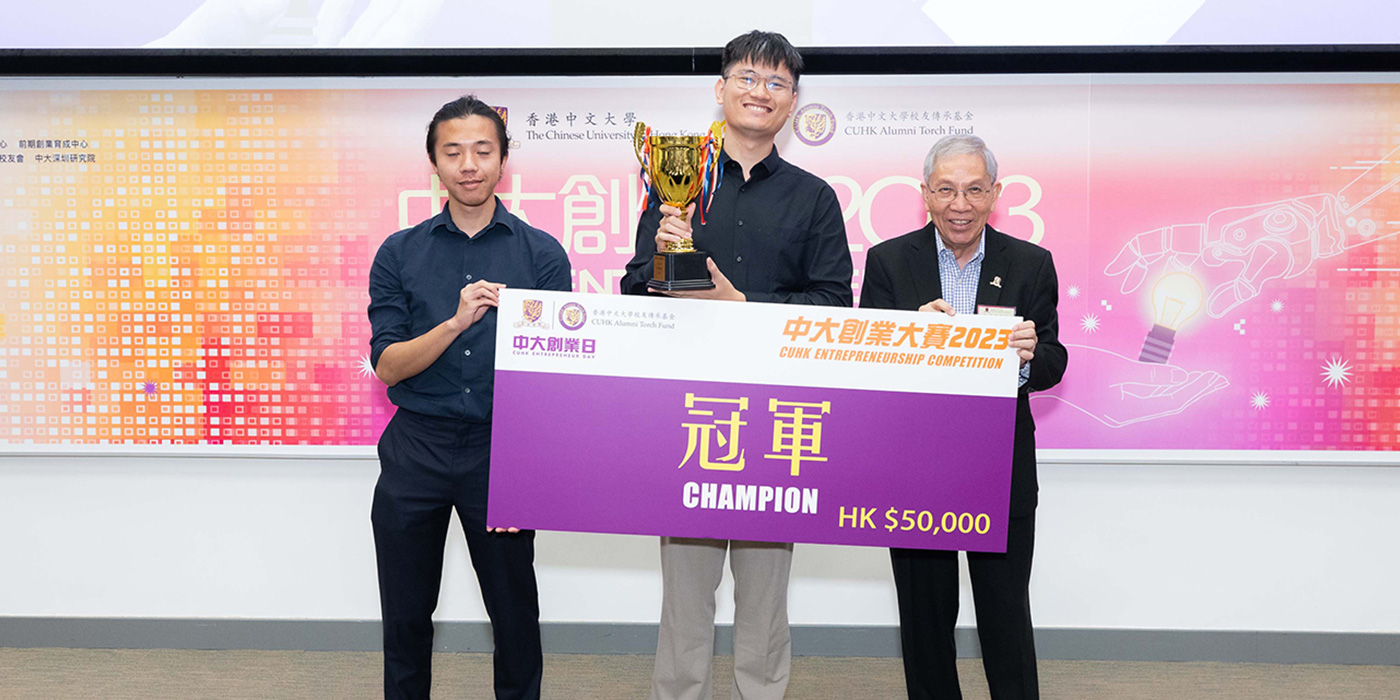
Although the lofty world of academia may seem like an odd fit for the more down-to-earth realities of entrepreneurship, both Professor Lu and Dr Wang suggest that the gap is not as wide as it seems. “I think studying engineering itself is the application of scientific principles to solve practical issues and problems,” says the professor, adding that entrepreneurship encourages students to flesh out their solutions and bring them to others. “An engineer with entrepreneurial ambitions? That’s actually the best way to utilise their knowledge.”
by Chamois Chui

